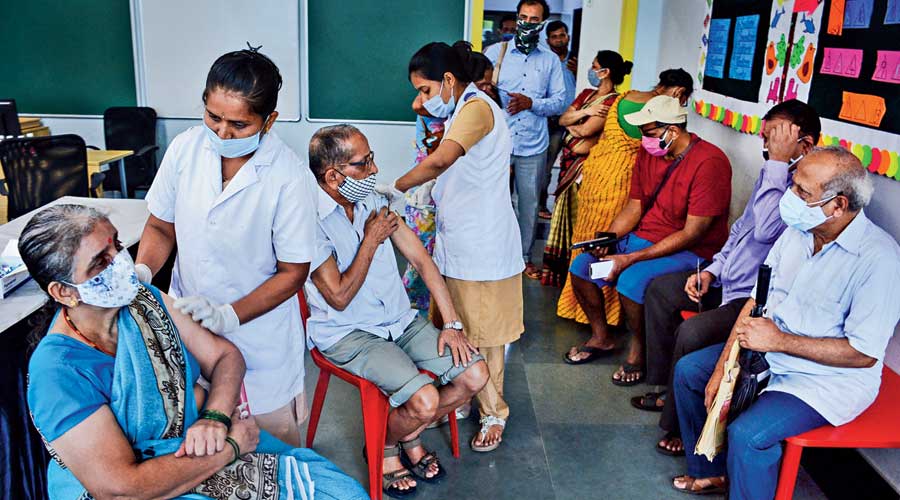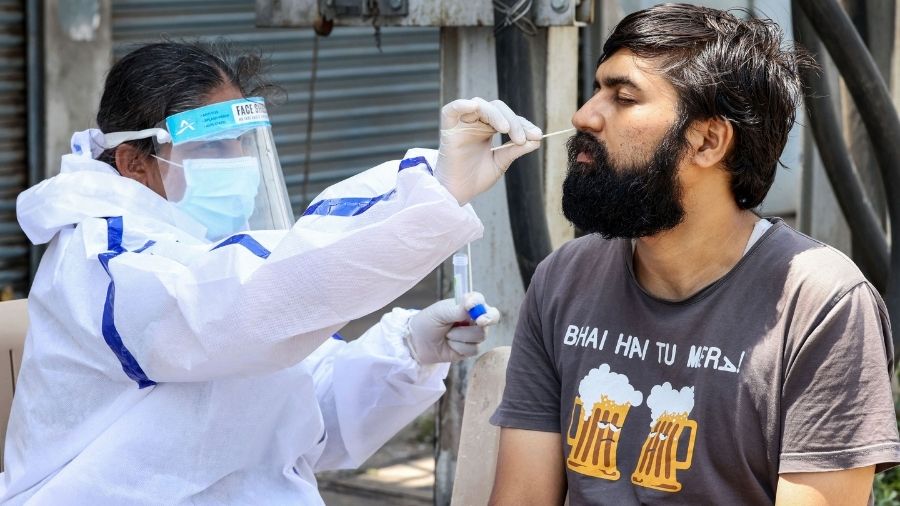A nationwide research consortium has signalled plans to sample sewage water from select cities amid mounting evidence that regular wastewater surveillance combined with genome sequencing may help predict surges in Covid-19 days to weeks in advance.
The Indian National SARS-CoV-2 Genome Consortium, an initiative funded by the Union science and technology and health ministries, hopes to expand sewage surveillance for Covid-19 in the country, scientists with the consortium said while declining for now to provide details.
“Regular sewage wastewater surveillance could inform us about a possible surge well in advance,” said Chaitanya Joshi, director of the Gujarat Biotechnology Research Council (GBRC), Gandhinagar, one of the 28 labs nationwide that make up the consortium.
Joshi and his colleagues have found genetic signatures of the highly transmissible Delta coronavirus variant in Ahmedabad’s wastewater, collected in February 2021, a month before the city’s first Delta case. The finding demonstrates the importance of wastewater sampling as an early indicator of the circulating variants.
Researchers have known for more than a year through observations in several countries that the genetic residues of SARS-CoV-2, the virus that causes Covid-19, can show up in wastewater shed by people who may or may not know that they are infected.
The GBRC team collected two samples each from Ahmedabad’s wastewater streams in September 2020, November 2020 and February 2021, sequenced the genetic residues in the samples and found the Delta variant in the February samples.
“The wastewater sample can also tell us how prevalent a variant might be in the local population,” Joshi told The Telegraph.
The analysis has suggested that the Delta variant accounted for about 57 per cent of the circulating coronaviruses in the city a month before health authorities detected the first Ahmedabad patient infected by the strain in March 2021.
The early detection in wastewater samples is not surprising, Joshi said. About 80 per cent of patients infected by the coronavirus have mild or no symptoms at all and a large fraction of such patients do not seek a diagnostic test but shed the virus while they are infected.
In such circumstances, Joshi said, the viruses circulating in a locality are likely to enter the local wastewater streams before they are picked up through diagnostic tests on patients.
The Ahmedabad study points to the silent circulation of the Delta variant in early February, a period when scientists had not yet fully appreciated the speed at which the variant was spreading, scientists with the consortium who were not associated with the study said.
A document on the consortium released by the science ministry’s department of biotechnology on June 23 mentions sewage surveillance among its objectives, but a senior consortium scientist declined to discuss details of the sampling plans or timeline.
“I won’t shy away from saying that I’m disappointed at the pace of wastewater surveillance in the country,” said Manish Kumar, an assistant professor at the Indian Institute of Technology, Gandhinagar, who collaborated with the GBRC in the study.
Kumar said other countries such as Britain had already initiated wastewater surveillance efforts to monitor coronavirus variants circulating in specific localities.
“Wastewater surveillance along with sequencing would be a cost effective means of keeping track of the variants in our cities,” he said.











